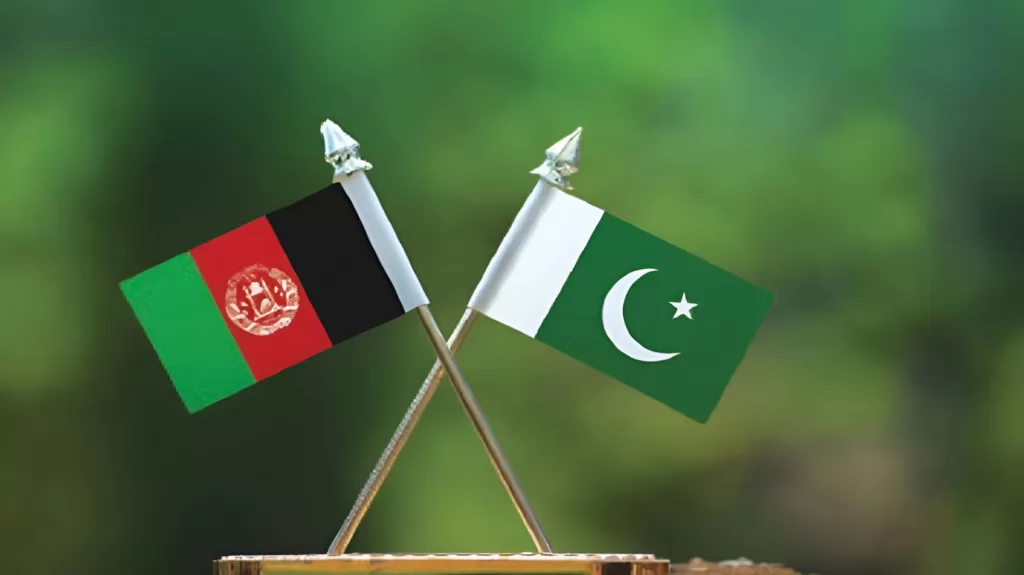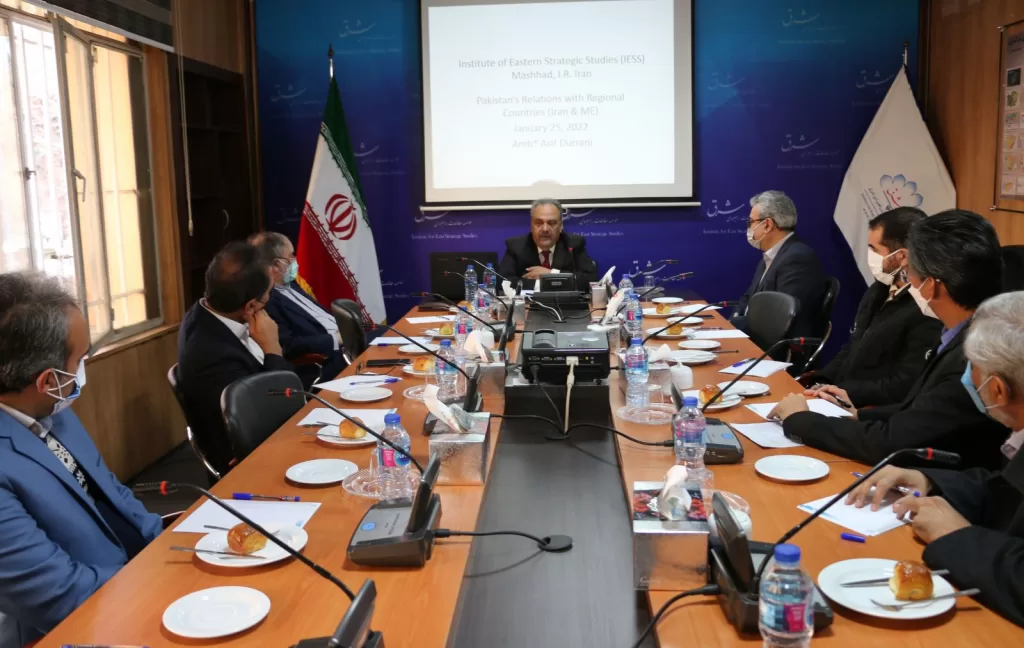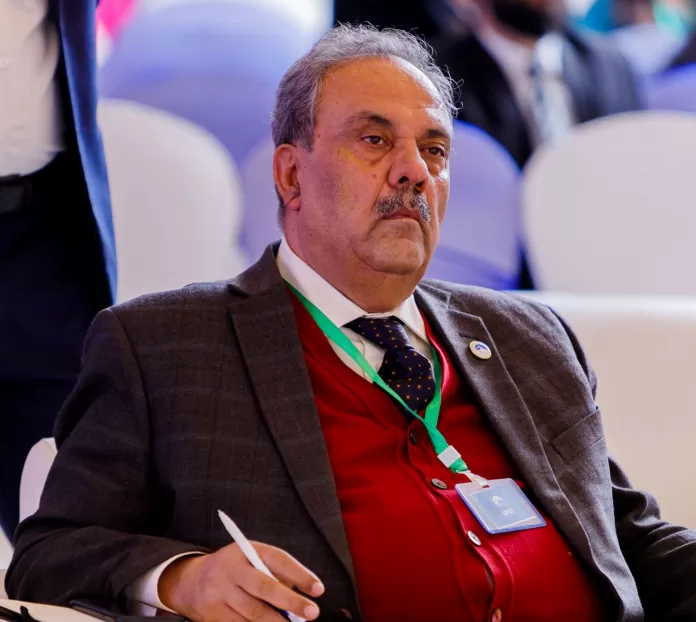Ambassador (Retd) Asif Ali Durrani has been a career diplomat for more than three decades, and served as Ambassador of Pakistan to the UAE and Iran. He was also posted to India, Afghanistan, United Kingdom and Pakistan Mission to the United Nations in New York. Prior to joining the Foreign Service of Pakistan in 1986, Durrani worked as a journalist.
He is a prolific writer and opinion-maker, and is sought for his wisdom on inter-state relations. Amb. Durrani before being appointed as Pakistan’s Special Representative on Afghanistan was serving as Senior Research Fellow with Islamabad Policy Research Institute.)
Afghanistan is in transition. It is making strides to seek stability after decades of warfare and revulsion. The Taliban 2.0 regime has surprised many by holding the fort with wisdom and that too without recognition to this day. Though a hardline dispensation, it has exhibited its desire to accommodate folks from all sections of society and has desisted from radicalism. By throwing open vistas for women and minorities, unlike its first stint in power, the militia stands tall to revive the civil-strife wrecked country to new heights. Its articulate presentation of a deficit-free budget as Washington continues to seize $9.5 billion in reserves, it has shown the way for developing states a lesson in resilience. But there are a plethora of challenges for it internally and externally. It still lacks the social adhesiveness and the presence of non-state actors with a definite militaristic mindset poses an existential threat. Likewise, it has to walk a tightrope as it reorients its foreign relations, especially with its immediate neighbours and, of course, the United States after the latter’s hurried exit after two decades of occupation on August 15, 2021.
Moreover, the bonanza that knocks on its door in the form of Chinese investment and trans-regional projects will act as a compelling factor for Taliban to reform and double-down for adaptability. With Pakistan, it still has issues to address open questions and the porous border of more than 2600 kilometers will be a geopolitical riddle to manage. The presence of Tehrik-e-Taliban and other militant fissures such as Islamic State of Khorasan and Al Qaeda remnants will serve as factors to initiate and build-up some strong bilateralism between Kabul and Islamabad.
Defence Journal Spoke to the recently appointed Pakistan’s Special Representative on Afghanistan, and sought his acumen over issues of inter-state relations and the way ahead. Here is a verbatim of the interview:

Q. Please tell us about your role as Pakistan’s Special Representative on Afghanistan?
Ans. My role is to act as a bridge between my principals and government, and the Government of Afghanistan. We also have very great interaction with other countries’ representation in Afghanistan, and my endeavour will be to further streamline the valuable relationship. Moreover, I will also be looking after the ongoing Pakistani projects in Afghanistan, such as in the fields of heath, security cooperation, trade and commerce, as well as scholarships that we bestow on Afghan students. The intention is to galvanise cooperation in all facets of bilateralism.
Q. What is the minimum change that you would endeavour to have in relations with Afghanistan?
Ans. Well, the relations with Afghanistan are very strong and spread over more than seven decades. It is again an ongoing organic process, as both countries make new strides. One single person cannot make much of a difference. My endeavour as Special Envoy will be to ensure stable relations with Afghanistan by promoting peace, stability and security, and in all avenues of socio-economic cooperation. Luckily, the relations these days are much better as compared to what we had in yester-decades, such as after 9/11, and even worse during the Soviet occupation of the southwest Asian state. The pace of ties have improved and are getting more cordial.
Q. Please educate us as to how the geo-strategic equation has changed for Pakistan in the wake of the United States exit from the Southwest Asian State, and what impact it has had on Kabul-Islamabad ties?
Ans. We had maintained a relationship with all the governments in Afghanistan. Be it the Mujahideen, the Communists, the Taliban or even the previous dispensations of Hamid Karzai and Ashraf Ghani. At times we had downgraded ties but state-centric business was as usual, as we are immediate neighbours. Yes, the exit of Americans is a big development as they left the war-torn country after two decades, and vice-versa the country witnessed the longest war in Afghan history. But our relations with Afghanistan are permanent and symbiotic. Our relations cannot be equated with the United States’ exit, as they span over seven decades of cooperation, and geographical indispensability.
Q. Do you see a resounding role of China in Afghanistan and, if so, how will it help Pakistan in BRI-CPEC terms?
Ans. I’m not sure what you mean by resounding, but as I understand Afghanistan is also very important for China as a neighbour, and they strive to have good relations. Beijing is very much interested in promoting peace and security in the war-torn country, as it impacts business projects across the region. It is so because security is a must and Afghanistan has to be stable to realise big trans-regional ventures such as Belt and Road Initiative (BRI) and China-Pakistan Economic Corridor (CPEC). With serenity and prosperity in the region, it is a win-win situation for both China and Afghanistan.
Q. There is a lot of informal economic activity as well as illegal movement of men and material across the porous borders between the two states. What would you envisage and suggest to streamline it?
Ans. Smuggling and illicit trade is a routine between many of the countries, so has been the case between Pakistan and Afghanistan for decades. Informal trade constitutes a major part of activity across the borders. As far as peoples’ entry is concerned, more than 30,000 to 40,000 Afghans enter and exit Pakistan on a daily basis without valid documents for occupational reasons. It has not been an unusual activity in this part of the region. We have to realise that the porous border is more than 2600 kilometers long, and it poses severe challenges for security and intelligence agencies, as well as for governments on both sides. As far as movement of material is concerned, it all depends on tariff lines. There are similar trends between Switzerland and France, and Britain and France, as commodities exchange borders without a proper format. Yes, there is a need to look into it to make it more rational.

Q. It is noticed that prosperous Afghans in the UAE are considered as a business asset, and in Iran too they are valued, what ails Pakistan? And as to why we have not been able to reap this potential in interstate relations? Any suggestions?
Ans. It is a debatable issue. There are more than three million Afghans in Pakistan on valid documents. Of course, there are Afghans in the UAE and Iran too but the conditions are different for them. Here the Afghans have become a part and parcel of our society. This is why we cannot make a comparison of the way Afghans live in Iran, where they are concentrated in desolated camp areas.
Q. It seems Kabul’s heart lies with New Delhi. What can Pakistan do to improve relations with both India and Afghanistan, and make use of our geography for transit trade?
Ans. I do not buy this theory that Kabul’s heart lies in New Delhi. They have their own bilateral relations, and we are happy about it. We also have good relations with Kabul, and it does not matter if they are good with India as well. As far as transit trade facility is concerned, it needs to be noted that India has not yet formally requested for such a provision with Pakistan. If it does so, then we will also be qualified to ask for a similar transit facility to Nepal and beyond. It makes two to tango!
Q. How can the distrust in tribal areas vis-à-vis Afghanistan be addressed, and what future do you see of non-state actors on both sides of the divide?
Ans. There is no trust deficit with tribes. But, yes, there are concerns on both sides of the divide. The Tehrik-e-Taliban Pakistan (TTP) is an issue in this regard. We are collectively addressing this issue, and are hopeful that things will turn out to be better. Improving the security situation will help both the countries.
Q. As Special Envoy, will you recommend recognition of Taliban 2.0 regime? And how soon is that viable?
Ans. Pakistan’s recognition of the Taliban government is not enough. Other countries of the region too, especially, should do it. A simultaneous recognition of the government in Kabul by all the neighbouring states is a good proposition. For that things will have to be better and a conducive environment created. I will say it is a good policy that the Taliban 2.0 government should be recognised collectively.




